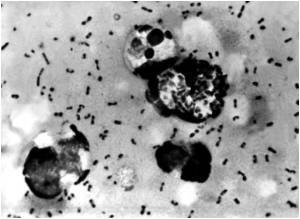
For Grayson, the key reason for the marked decline in discoveries "is a changing of focus of drugs companies away from antibiotics," he told AFP, saying the lack of new drugs means people are seeing more "infections that are untreatable with antibiotics because we don't have new drugs to treat them."
Drug resistance in bacteria, blamed on excessive and improper use of antibiotics, is not new, and health experts warn of an increasingly dangerous environment where the problem can flourish.
The World Health Organization (WHO) last month issued a fresh warning over the metallo-lactamase-1 (NDM-1) gene that enables some micro-organisms to be highly resistant to almost all antibiotics.
The Lancet medical journal said bacteria containing the NDM-1 gene had been found in 37 Britons who had received medical treatment in South Asia in recent months.
To fight the rising microbial resistance, Grayson -- who described the NDM-1 bug as a "very serious" threat -- called for a focus on wiser use of antibiotics.
Advertisement
Grayson also said the sale of antibiotics needs to be better controlled by requiring a prescription and not sold over the counter.
Advertisement
"There is still time and plenty of opportunities to fix things," he said, noting that another key measure is the more controlled use of antibiotics in animals for human consumption, notably poultry.
ICAAC marks its half century with the publication of a book containing key findings in the fight against microbial infections.
Source-AFP









